Guinea pigs are adorable and charming creatures that make great pets. If you are a pet owner, you know how much care and attention they need to ensure they stay happy and healthy. One of the ways you can keep your furry friend healthy is by providing them with a nutritious and balanced diet.
There may be times when you are unsure whether certain foods are safe for your guinea pig to consume. One such food that pet owners often wonder about is chamomile. In this section, we will explore whether chamomile is safe for guinea pigs to eat, the potential health benefits, and any risks involved.
Key Takeaways:
- Guinea pigs require a nutritious and balanced diet to stay healthy.
- Pet owners often wonder if chamomile is safe for their guinea pigs to eat.
- It’s crucial to understand the potential benefits and risks of introducing chamomile into a guinea pig’s diet.
- Consulting with a veterinarian can provide personalized advice tailored to your guinea pig’s specific needs and health conditions.
Understanding the Guinea Pig’s Diet
Guinea pigs are herbivores, which means that they only eat plants. They require a diet that is high in fiber, Vitamin C, and low in fat to maintain their health. Their digestive systems are complex and require a consistent and balanced diet to function properly.
Typical foods that should be included in a guinea pig’s diet include hay, fresh vegetables such as carrots, bell peppers, and kale, and pellets that are specifically formulated for guinea pigs.
Tip: Hay should be the foundation of a guinea pig’s diet, and it should always be available for them to graze on throughout the day. Pellets and vegetables should be given in moderation to supplement their hay intake.
The Nutritional Needs of Guinea Pigs
Guinea pigs have specific nutritional requirements to maintain their health and prevent health problems. Vitamin C is a crucial nutrient that guinea pigs cannot produce on their own, and they require a daily intake to avoid scurvy.
In addition to Vitamin C, guinea pigs need fiber to support healthy digestion. Quality hay can provide the necessary fiber, while pellets should contain a minimum of 18% fiber. Too much fat in a guinea pig’s diet can lead to obesity, making it important to avoid high-fat treats and fatty vegetables.
Types of Foods Guinea Pigs Should Consume
Guinea pigs need a variety of foods to stay healthy and happy. Hay should make up the bulk of their diet, and fresh vegetables can be provided daily. Guinea pigs should always have access to fresh, clean water from a water bottle or bowl. Pellets should be used to supplement their diet, with a recommended serving size based on your guinea pig’s weight.
Tip: It’s important to avoid giving guinea pigs foods that are toxic to them, such as chocolate, avocado, and onions.
What is Chamomile?
Chamomile is a daisy-like plant that belongs to the Asteraceae family. This plant has a long history of use in traditional medicine due to its various medicinal properties, primarily in promoting relaxation and easing digestive discomfort. Chamomile contains several active ingredients, including flavonoids, terpenoids, and essential oils, which contribute to its health benefits.
Chamomile is most commonly consumed as a tea or used topically in creams, salves, and essential oils. It’s important to note that the type of chamomile used for medicinal purposes is typically German chamomile (Matricaria chamomilla) or Roman chamomile (Chamaemelum nobile).
Chamomile is widely recognized for its calming effects on the body, making it a popular natural remedy for anxiety and insomnia. Additionally, it has anti-inflammatory properties and may support digestive health by reducing gut inflammation and helping to soothe an upset stomach.
While chamomile has been extensively researched for its potential health benefits in humans, its effects on guinea pigs require further investigation. In the following sections, we will explore whether it is safe for your guinea pig to consume chamomile, the potential risks and benefits, and how to introduce it safely into their diet.
Can Guinea Pigs Safely Consume Chamomile?
If you’re considering giving your guinea pig chamomile, it’s important to understand its potential risks and benefits. While chamomile is generally safe for humans, guinea pigs have unique dietary needs that must be taken into account.
Chamomile has several potential benefits for guinea pigs, including its calming properties and digestive aid potential. However, some guinea pigs may be allergic to chamomile or experience adverse effects after consuming it.

To be safe, it’s recommended to introduce chamomile gradually and in small amounts. Watch your guinea pig for any signs of distress or discomfort after consuming chamomile.
If you have any concerns or questions, consult with a veterinarian before adding chamomile to your guinea pig’s diet. It’s always better to be safe than sorry when it comes to your furry friend’s health.
Potential Benefits of Chamomile for Guinea Pigs
Chamomile is known for its calming properties, and this extends to guinea pigs as well. If your guinea pig is prone to stress or anxiety, chamomile can help them feel more relaxed and comfortable.
In addition to its calming effects, chamomile can also serve as a digestive aid for guinea pigs. It may help alleviate digestive issues such as bloating, gas, and constipation.
Moreover, chamomile has anti-inflammatory properties that may help with various ailments. It can help reduce inflammation in the gut and other parts of the body, promoting overall health and wellbeing.
Overall, incorporating chamomile into your guinea pig’s diet may offer a range of potential benefits for their health and happiness. However, it’s important to do so in moderation and under the guidance of a veterinarian.
Risks and Precautions of Feeding Chamomile to Guinea Pigs
Although chamomile tea is often used by humans for its soothing properties, it may not be suitable for guinea pigs. Chamomile may pose several risks and potential dangers when fed to guinea pigs.
1. Allergies
Like all living beings, guinea pigs may develop an allergy to chamomile. The symptoms may include itching, redness, swelling, or even difficulty breathing. If you notice any of these signs, it’s essential to discontinue feeding chamomile immediately and seek veterinary assistance.
2. Digestive Problems
Chamomile may act as a natural sedative, which can result in sluggish digestion, leading to bloating and diarrhea in guinea pigs. Also, improper preparation or overdose may cause stomach upset and vomiting in guinea pigs.
3. Toxicity
As with any new food, there’s a risk of toxicity. Certain chamomile plants may contain a toxic substance called thujone, which can cause nervous system disorders in guinea pigs, ranging from seizures to even death.
Thus, it’s crucial to be aware of the risks that chamomile may pose to your furry friend. Furthermore, always consult with a qualified veterinarian to determine if chamomile is suitable for your guinea pig to consume.
Proper Introductions and Portions
If you’ve decided to introduce chamomile to your guinea pig’s diet after considering the potential benefits and risks, it’s important to remember to do so gradually. Introducing new foods too quickly can result in digestive issues, diarrhea, or other health problems. Always monitor your guinea pig closely for any changes in behavior or health.
Begin by introducing a small amount of chamomile diluted in water or mixed with a small amount of their regular food. If they tolerate it well, slowly increase the amount over a few weeks. Make sure to never give your guinea pig an unlimited supply of chamomile or any other new food as this can lead to overeating and weight gain.
Remember, the portion size for guinea pigs should be no more than a teaspoon a day, and the recommended frequency is once a week, no more.
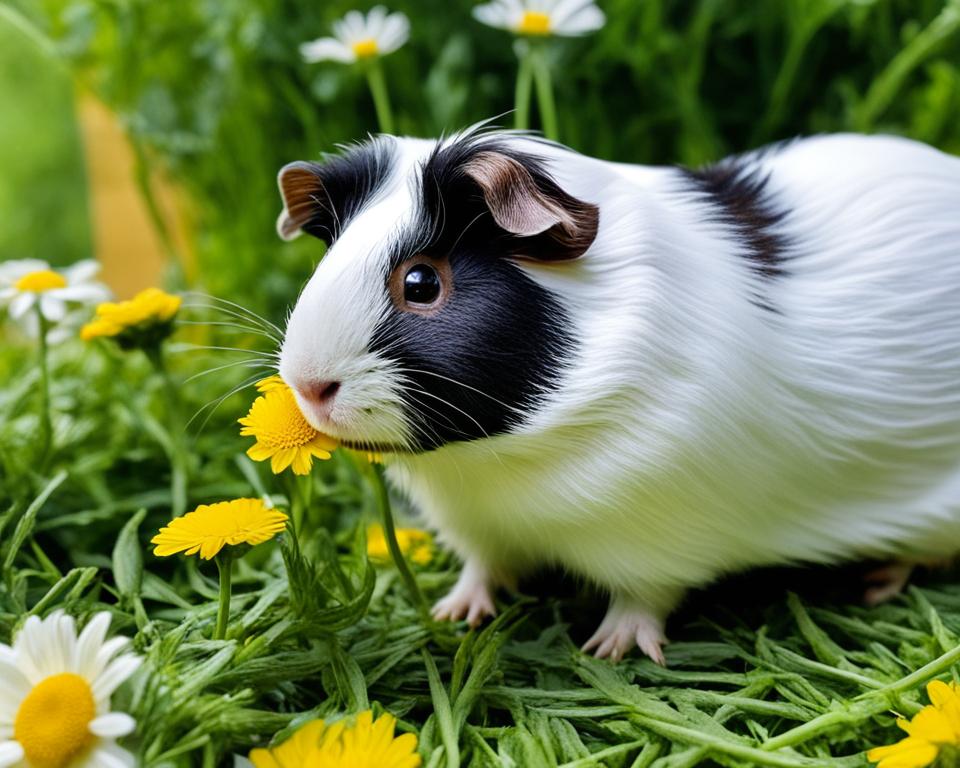
Alternatives to Chamomile for Guinea Pigs
While chamomile may offer potential benefits for guinea pigs, it’s understandable if pet owners have concerns about feeding it to their furry friends. Fortunately, there are alternative herbs and plants that guinea pigs can safely consume and offer similar benefits.
1. Dandelion Greens
Dandelion greens are a great alternative to chamomile and are safe for guinea pigs to consume. They contain vitamin C, calcium, and potassium, which are essential nutrients for guinea pig’s health. Dandelion greens also have diuretic properties, which can help with urinary tract infections.
2. Parsley
Parsley is another safe herb that guinea pigs can eat as a substitute for chamomile. Parsley contains vitamins A, C, and K, and also has some anti-inflammatory properties.
3. Mint
While too much mint can cause digestive problems in guinea pigs, small amounts are safe and have potential benefits. Mint has calming effects, which can help with stress and anxiety in guinea pigs.
When introducing any new food to your guinea pig’s diet, it’s crucial to do so gradually and in moderation. Always consult with a veterinarian before making any changes to your guinea pig’s diet or if you have any concerns about their health.
Monitoring Your Guinea Pig’s Health
When introducing new foods into your guinea pig’s diet, it’s essential to monitor their health and well-being closely. While chamomile may offer potential benefits, it’s crucial to watch out for any adverse reactions that may occur.
Some signs to watch out for include diarrhea, vomiting, lethargy, loss of appetite, and stomach discomfort. In rare cases, chamomile can cause allergic reactions, leading to respiratory problems or even anaphylactic shock.
If you notice any of these symptoms, seek veterinary assistance immediately. Your vet may recommend discontinuing the use of chamomile or other new foods and prescribing medication to alleviate any adverse effects.
Regular check-ups with your vet can prevent any potential health issues and ensure that your guinea pig stays healthy and happy.
Conclusion
Guinea pigs are adorable, friendly creatures that can make great pets. However, it’s crucial to be diligent when it comes to their diet and nutrition. Chamomile is an herb that has been touted for its potential benefits for humans, but is it safe for guinea pigs?
After exploring the potential risks and benefits of chamomile for guinea pigs, it’s up to you to make a decision that’s best for your furry friend. If you do choose to introduce chamomile (or any other new food) into your guinea pig’s diet, be sure to do so in a controlled and responsible manner. Always monitor their health and well-being closely to ensure they remain happy and healthy.
Remember, the information provided in this article is intended to be a helpful guide, but it’s important to consult with a veterinarian for personalized advice tailored to your guinea pig’s specific needs and health conditions. With the right care and attention, your guinea pig can live a long and happy life!
FAQ
Can guinea pigs eat chamomile?
Yes, guinea pigs can safely consume chamomile. However, it should only be given in moderation as a treat and not as a staple part of their diet.
What is the typical diet of a guinea pig?
A guinea pig’s diet should consist mainly of hay, fresh vegetables, and a small amount of pellets. They also need a constant supply of fresh water.
What is chamomile?
Chamomile is an herb that is commonly used for its calming properties. It is often consumed as a tea and is known for its potential health benefits.
Are there any risks associated with feeding chamomile to guinea pigs?
While chamomile is generally considered safe for guinea pigs, there are a few risks to be aware of. Some guinea pigs may be allergic to chamomile, and excessive consumption can cause digestive upset.
What are the potential benefits of chamomile for guinea pigs?
Chamomile can have calming effects on guinea pigs, helping to reduce stress and anxiety. It may also provide digestive aid and help alleviate any digestive issues that your guinea pig may be experiencing.
Are there any precautions I should take when introducing chamomile to my guinea pig’s diet?
Yes, it’s important to introduce chamomile slowly and in small amounts to monitor your guinea pig’s reaction. If any negative symptoms occur, discontinue feeding chamomile and consult with a veterinarian.
Are there any alternatives to chamomile for guinea pigs?
If you’re hesitant about feeding chamomile to your guinea pig, there are alternatives available. Some safe herbs for guinea pigs include parsley, cilantro, and dandelion greens.
What should I look out for to monitor my guinea pig’s health after introducing chamomile?
Keep an eye out for any changes in your guinea pig’s behavior, appetite, or digestion. If you notice any unusual symptoms or concerns, it’s best to consult with a veterinarian.
Can guinea pigs eat chamomile as a regular part of their diet?
No, chamomile should only be given to guinea pigs as an occasional treat and not as a regular part of their diet. It should always be offered in moderation.
Where can I find more information and personalized advice for my guinea pig’s diet?
It’s always a good idea to consult with a veterinarian for personalized advice tailored to your guinea pig’s specific needs and health conditions. They can provide you with the best guidance and ensure the well-being of your guinea pig.

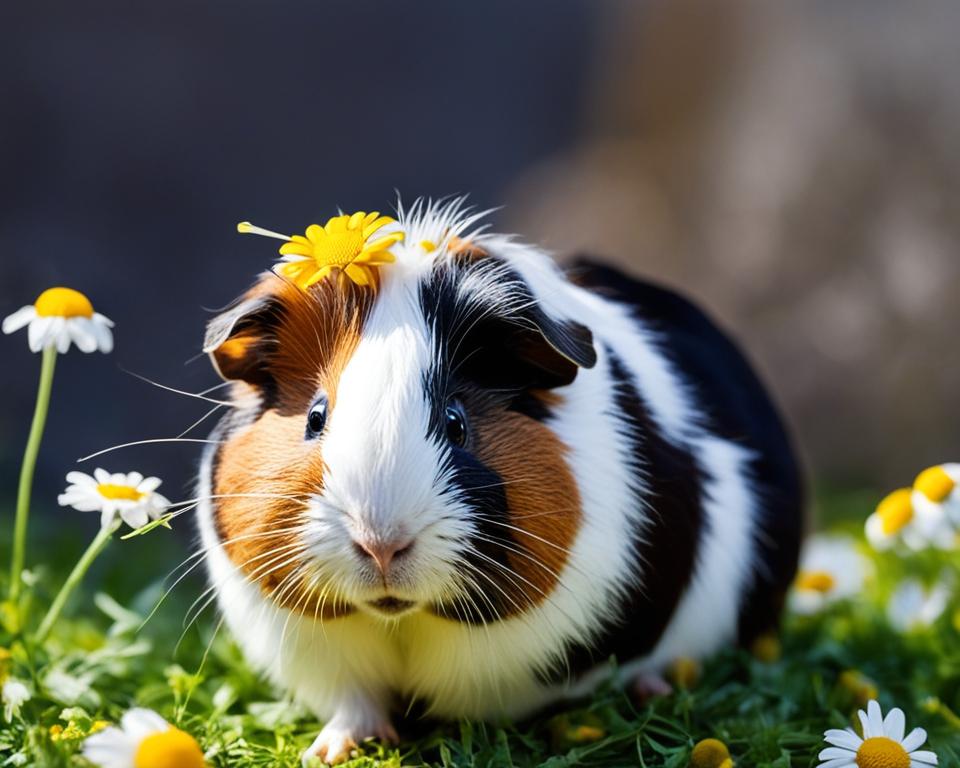
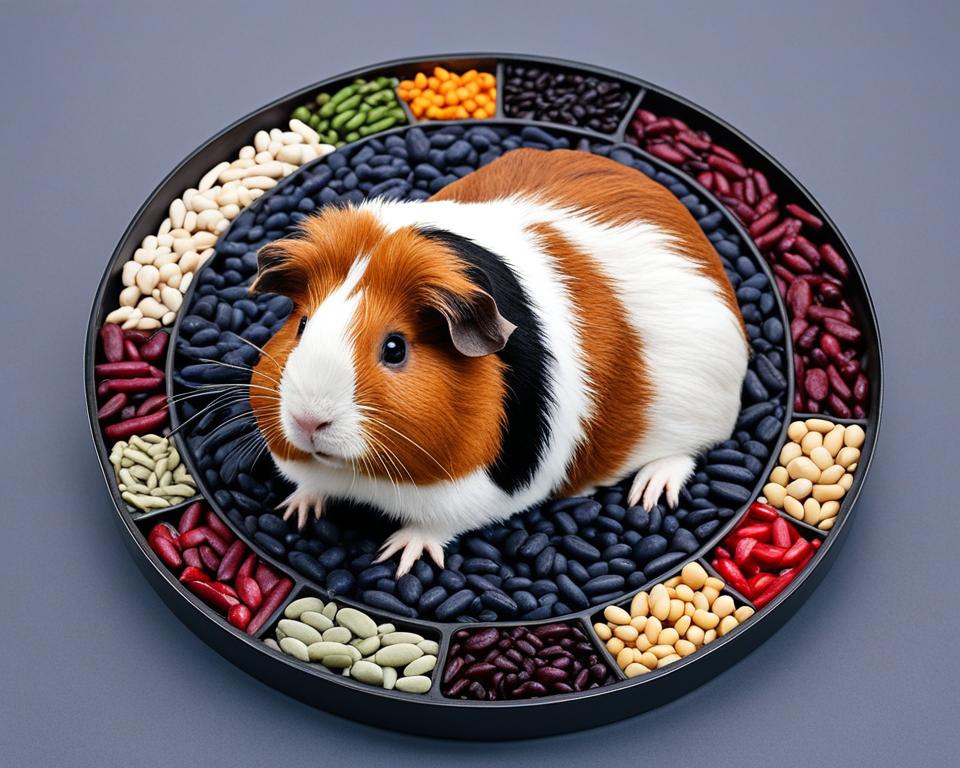
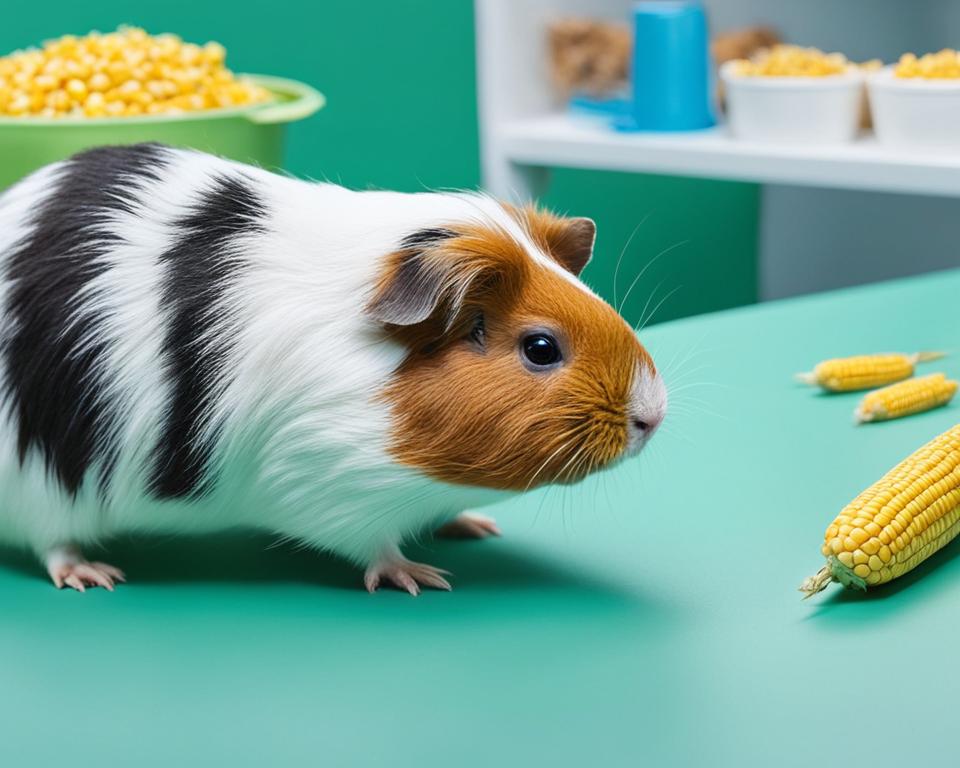
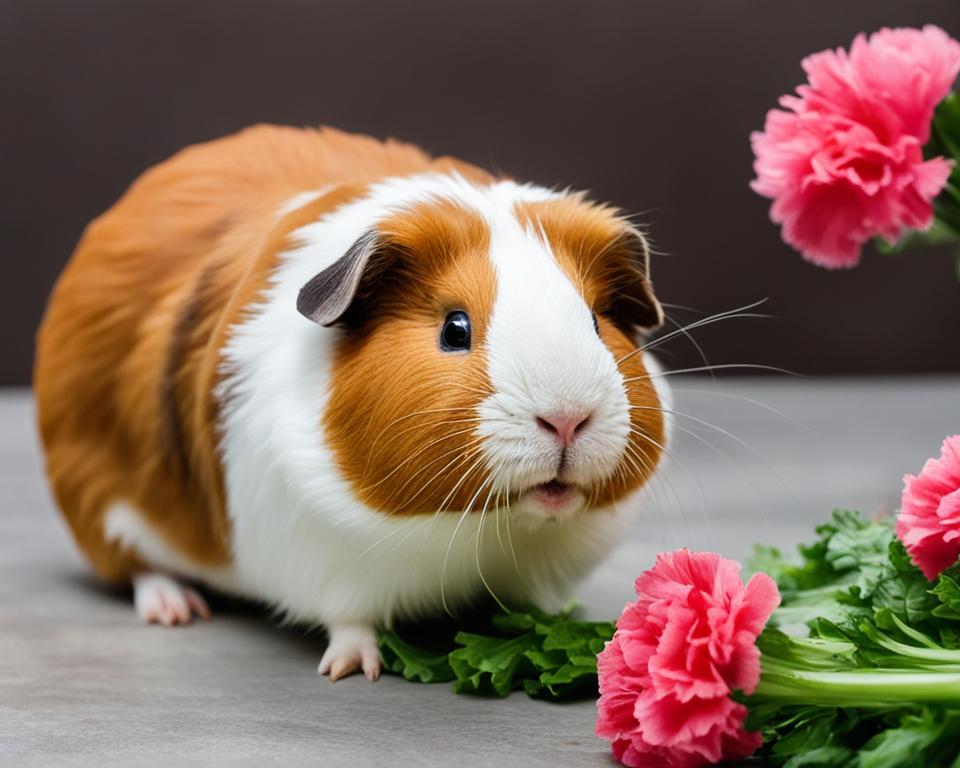
Leave a Reply